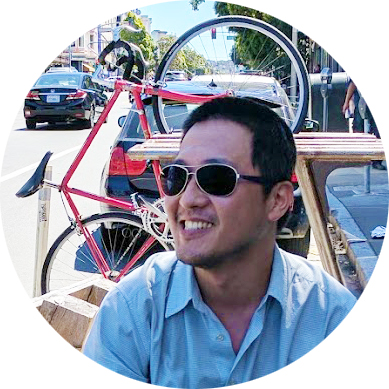Preprint
Goal-oriented predictive representations in the human hippocampus
J Crivelli-Decker, A Clarke,
SA Park, DJ Huffman, ED Boorman, C Ranganath
BiorXiv
10.1101/2021.08.18.456881
Do grid codes afford generalization and flexible decision-making?
LQ Yu *,
SA Park *, SC Sweigart, ED Boorman ☨, MR Nassar ☨
arXiv
:2106.16219
2022
Neural mechanisms of credit assignment for inferred relationships in a structured world
PP Witkowski,
SA Park, ED Boorman
Neuron
, (110) 1–11
2021
Inferences on a Multidimensional Social Hierarchy Use a Grid-like Code
SA Park, DS Miller, ED Boorman
Nature Neuroscience
, 24 (9) 1292–1301
[Supplementary Info]
Protocol for building a cognitive map of structural knowledge in humans by integrating abstract relationships from separate experiences
SA Park, DS Miller, ED Boorman
STAR Protocols
, 2 (2), 100423
Complementary Structure-Learning Neural Networks for Relational Reasoning
J Russin, M Zolfaghar,
SA Park, ED Boorman, RC O'Reilly
Proc. Annu. Meet. Cogn. Sci. Soc. 2021
The orbital frontal cortex, task structure, and inference
ED Boorman, PP Witkowski, Y Zhang,
SA Park
Behavioral Neuroscience
, 135 (2), 291
Cognitive maps and novel inferences: a flexibility hierarchy
ED Boorman, SC Sweigart,
SA Park
Current Opinion in Behavioral Sciences
, 38, 141-149
2020
Map making: Constructing, combining, and inferring on abstract cognitive maps
SA Park, DS Miller, H Nili, C Ranganath, ED Boorman
Neuron
, 10.1016/j.neuron.2020.06.030
[Supplementary Info]
2019
Modeling Other Minds: Bayesian Inference Explains Human Choices in Group Decision Making
K Khalvati,
SA Park, S Mirbagheri, R Philippe, M Sestito, JC Dreher, and RPN Rao
Science Advances
, 10.1126/sciadv.aax8783
Neural computations underlying strategic social decision-making in groups
SA Park, M Sestito, ED Boorman, JC Dreher
Nature communications
, 10.1038/s41467-019-12937-5
A Bayesian Theory of Conformity in Collective Decision Making
K Khalvati, S Mirbagheri,
SA Park, JC Dreher, RPN Rao
Advances in Neural Information Processing Systems (NIPS)
, 9699-9708
2018
Wait and you shall see: sexual delay discounting in hypersexual Parkinson’s disease
R Girard, I Obeso, S Thobois,
SA Park, T Vidal, E Favre, M Ulla, E Broussolle, P Krack, F Durif, JC Dreher
Brain
, 142 (1), 146-162
2017
Integration of individual and social information for decision-making in groups of different sizes
SA Park, S Goiame, DA O'Connor, JC Dreher
Plos Biology
, 15 (6), e2001958
2016
A probabilistic model of social decision making based on reward maximization
K Khalvati,
SA Park, JC Dreher, RPN Rao
Advances in Neural Information Processing Systems (NIPS)
, 2901-2909
2015
Reappraising abstract paintings after exposure to background information
SA Park, K Yun, J Jeong
Plos One
, PloS one 10 (5), e0124159
2013
TV programs that denounce unfair advantage impact women’s sensitivity to defection in the public goods game
SA Park, S Jeong, J Jeong
Social neuroscience
, 8 (6), 568-582
